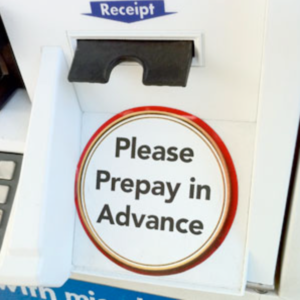The photo above comes from an article about the importance of good communication (a skill that necessitates avoiding redundancies). My post doesn't have anything to do with the article, but I do enjoy the humor of the image. (If you want to read the article, you can click the photo; it's a link.)
Instead, I've been thinking about ice hockey. My current Stingers' (adult women's team) season–the first I've participated in since before the world pivoted in March of 2020–is coming to a close. (We had a totally normal season in 2019-2020, and when I hosted the end-of-season brunch, I had no idea that would be my last social gathering for a very long time.) In the winter of 2020-2021, we didn't have a team. Nobody knew how to meet safely and were all on edge (unfortunately, not the skate blade's edge).
In 2021-2022, our team's home ice moved from my school's rink (500 yards from my home) to a neighboring school's campus (a 20-minute drive from my house). I couldn't envision myself driving forty minutes to get a workout, however fun the other women on the team are. Moreover, for me and many, that year was still about navigating personal safety in a tricky world. Everything that wasn't directly connected to doing my job and taking care of my family felt too dangerous to be worthwhile.
The following season, 2022-2023, I took on a new job that I knew would kick my butt. I correctly predicted that I'd be very busy in my new role as Dean of the Class of 2025, and I didn't want to sign up to play hockey if I would feel too burdened to show up. I don't like letting people down, and I would have been bummed not to be able to play when others were counting on me to be there.
This year, I made the decision about hockey before my life got busy with work. In the absence of competing demands on my calendar, I decided that taking time to do something I love is important. I missed my Stinger teammates. I missed skating. I missed the post-game gatherings. (For full disclosure, my team's motto is "It's not about the hockey," which, now that I think about it, will become the title of next week's Why Wednesday post.) Knowing that my winter would be rough as a dean and varsity coach, I didn't allow myself to wait until the start of the season to rejoin the Stingers. Instead, I prepaid both my USA Hockey registration fee and my team dues.
Once I shelled out my cash, I knew I would feel that I had to get my body onto the ice as often as possible to lower my price per practice. Paying in advance pushed me to make myself have the winter I wanted rather than letting whatever came my way take all my time.
Since I heard a Choiceology podcast on the topic, and my job entails talking with a lot of 2025s about bad choices they've made, I've been contemplating how people in general make decisions. Basically, we all do things differently when we think about our big-picture goals than when we consider only what's relevant in the moment. If we focus on making long-term goals that we'll remember frequently, we're more likely to make smart decisions than if we think only about what would feel fun/good/easy in the present. By prepaying for the season, I acted in alignment with my over-arching goals in a way that will help me remember what I really want when my daily routine fills up my time. This way, when I'm tired or busy, I'll be more likely to think about my price per ice, and I'll show up to play.
What long-term goals do you have for which you'd like to figure out how to pre-pay? Please share ideas in the comments so that together, we can help one another stick to our good intentions.

we talk about this all the time! totally agree with pre-paying, and it is a great habit to practice. Especially useful for the winter slump.
Great minds think like mine! (hehe) I hope you’re doing well.
” my job entails talking with a lot of 2025s about bad choices they’ve made,”
Wonder if most of the 2025s’ bad choices were during high school or during Hotchkiss or before, and if your rich data set suggests things the school might do to reduce bad student choices.
All of the 2025s are still in high school. Most of them make great choices all day, every day. That’s what gets them into Hotchkiss in the first place. I meant that whenever they (like many teens) do make bad choices, I’m the one who usually talks to them about how to reduce their bad-to-good choice ratio.